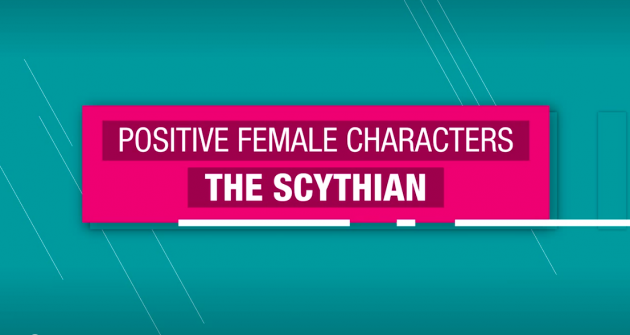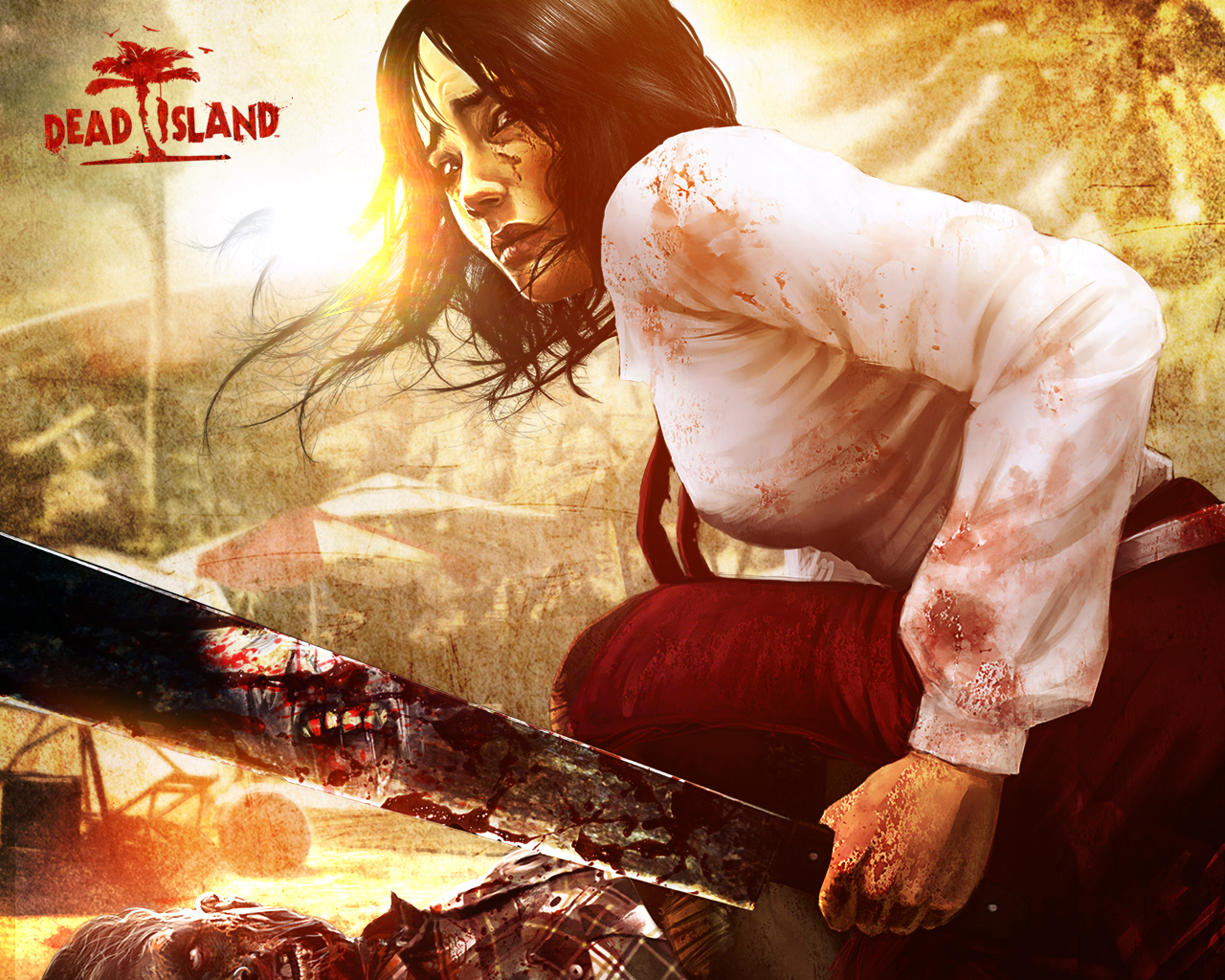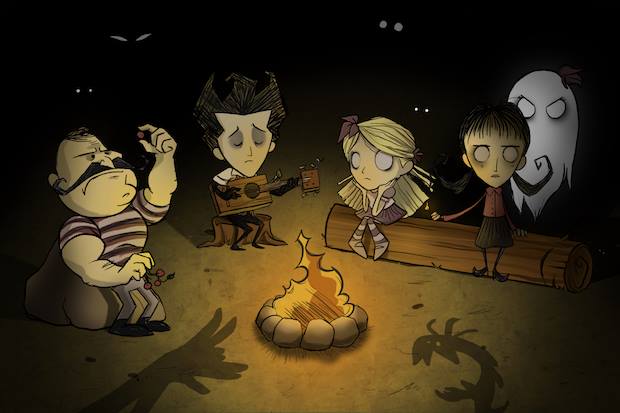Barbie’s new career was announced earlier this year, and now the new doll has been released: Game Developer Barbie, a doll whose price shot up almost immediately (what was initially available for $13 is now a hundred or more). While the doll is only available in white skin (for now? forever?), it still manages to be a leap ahead from the Computer Engineer Barbie who couldn’t quite engineer without dudes sweeping in to save the day. Game Dev Barbie, on the other hand, can code, and she’s eschewed Barbie’s traditional blonde! pink! looks for something a little better suited to the piles of overtime she’s probably putting in. Not that you can’t wear pink while working overtime, but. Cool, right? Competent tech Barbie!
In a perfect world, that’s all she’d be.
Of course, her outfit became an immediate target, from tongue-in-cheek (I hope?) thinkpieces to more brutal critiques on Twitter, and despite the code displayed on her silver laptop, the gem-matching game Barbie seemed to be making was decried as casual (though couldn’t it have been chosen because it’s very easily and obviously recognized even by, say, children?). Immediately, she was shoved aside. Not legit. More like SJW Barbie. Apparently a game developer Barbie doll inspires a lot of feelings, and a lot of quick Photoshops. She was blasted not only for her game, but also for simply being female (women aren’t logical and can’t code, of course), her hair and body, even her glasses. In other words:

Melanie Ehrenkranz collected some of the responses to the initial Twitter announcement of the doll’s release, but what’s in that piece only scratches the surface; Twitter and reddit are rife with “jokes” about the initial Zoe Quinn debacle from which GamerGate sprang, transphobic “jokes,” photoshops changing her appearance, flippant remarks about wanting attention, countless accusations of “Tumblr feminism,” and more, and more.
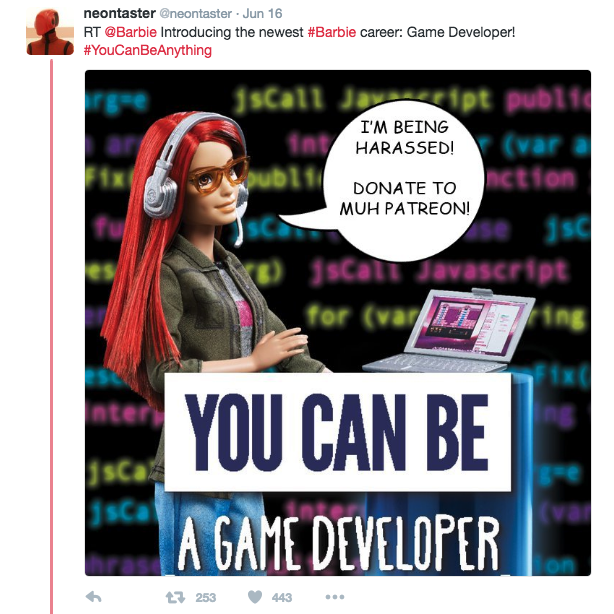
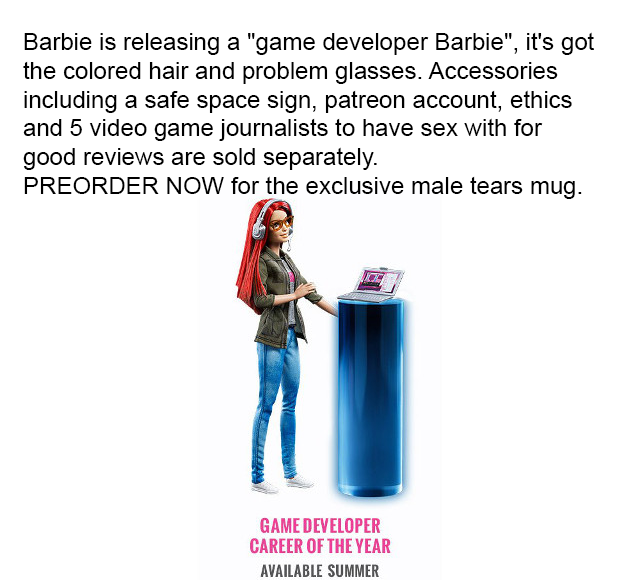
It’s funny, right? Such high-minded humor! Really contributing.
And speaking of contributing, here’s the thing I don’t understand: we need people making games. We need people making new games, interesting games, something besides Assassin’s Creed 26 or the next installment of Shoot Some Humanoids Who Aren’t Like You Somehow. Listen, I like franchises as much as the next person (some of ’em, anyway), and I’m all for sequels to great games, but we also need new games, exciting games, different games. We need all the games, and for all the games, we need all kinds of people who are interested in making games, shooters, brawlers, horror, narrative-driven and atmospheric, adventure, RPG, and whatever new things haven’t even quite been dreamed up yet.
So who profits from this kind of behavior? Who benefits? Spoiler: it’s not gamers. It’s certainly not women interested in making games, but it’s also not gamers, who may be convincing the next generation, today’s teens and young women, that maybe they just shouldn’t bother. Because why should they?
I know these young women, the ones who want to design games, who are already designing games. The ones with a passion for the industry. Some of them can look at this kind of stuff and laugh, roll their eyes, crack a joke about how dumb it all is, this overblown reaction to a Barbie. Others can’t. They’re already in classes with professors who won’t call on them, in groups where their quiet voices go unheard and unnoticed; they’re already finding solutions to never speaking while they play, to not arguing when a man takes the mouse or controller away from them or belittles their work. And what I think we forget sometimes is that for so many women, the training from birth is to give in. To avoid confrontation. To find a path of least resistance, so that’s what they do, changing majors, finding new hobbies, new passions, choosing new careers. Maybe they should just toughen up, huh? Because the industry is unforgiving? Sure. Many industries are. But we also don’t have to make getting there such a nightmare for young women. At some point, this has to stop.
There are others out there, right now, who can’t understand the weariness with which we approach these “jokes.” We’re just humorless feminists who need to retreat into our safe spaces, right? We can’t even handle jokes. And sure, this is just a Barbie. In the grand scheme of things, who cares?
But it’s also not just a Barbie; it’s not just anything. It’s everything. It’s everywhere. These remarks don’t stop once the Twitter window is closed. There are children of all genders who will get this doll, and they’ll hear some of it. And the message continues: boys make fun of girls, girls aren’t logical, games aren’t for girls, everyone needs to toughen up, accept insults and harassment, keep their heads down or be part of the crowd of shit-flingers. We’ve talked about this before here, particularly about how our own children, still so young, are already coming home from school hearing these kinds of things. Learning these lessons.
It’s just a doll. But it’s never just a doll. The pervasive attitudes that drive someone to photoshop a goddamned Barbie announcement are bigger than a doll.
Oh well. At least we get a game dev Barbie, maybe, eventually, if the price settles.


